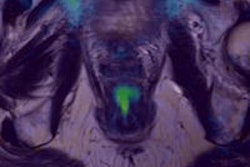Diffusion-weighted MRI (DWI-MRI) scans proved to be more accurate than PET/CT scans in differentiating benign lung lesions from cancerous ones, according to a Belgian study presented at the European Respiratory Society Congress, which is being held in Amsterdam this week.
In a study of 50 patients either diagnosed with or suspected of having lung cancer, images from diffusion-weighted MRI exams enabled radiologists to diagnose 90% of the patients correctly compared with 66% when interpreting PET/CT images. In addition to facilitating a more accurate diagnosis, DWI-MRI, a technique that measures water movement in the tissue of the lungs and can detect structural changes caused by lung cancer, eliminates a large radiation dose exposure to a patient.
The study was conducted at University Hospitals Leuven, where patients had a diffusion-weighted MRI exam the day before surgery. Presenter Dr. Johan Coolen, a thoracic radiologist, said that pathology was compared with the radiology reports of both the PET/CT and the DWI-MRI scans. With PET/CT scans, 33 patients were diagnosed correctly, seven incorrectly, and results were undetermined for 10 patients. Not only did the DWI-MRI scans enable radiologists to correctly identify the undetermined cases, but only five cases were incorrectly diagnosed.
Coolen and colleagues noted that inflammation in the lungs can be misinterpreted by PET/CT scans as a malignant lesion. Performing a diffusion-weighted MRI scan on preoperative lung cancer patients might prevent unnecessary surgical procedures, Coolen said.


















